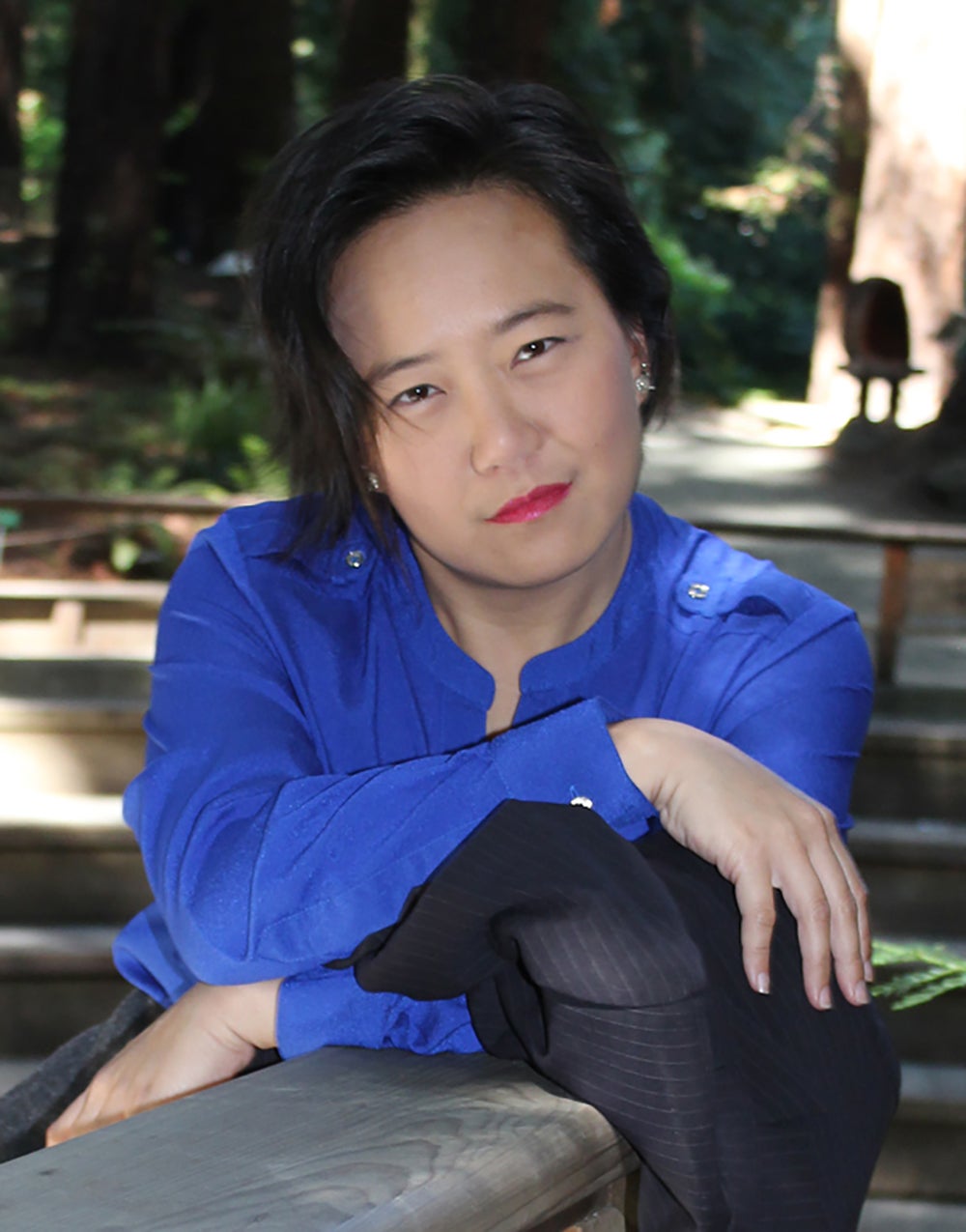University of California, Riverside

Shifting Perspectives on Steampunk
As a sci-fi writer, editor, and critic, Jaymee Goh embraces her role as a multicultural storyteller
W hen Jaymee Goh started writing stories as a child, they were filled with magic and science.
“There were robots and unicorns, and my friends and I were ‘Chosen Ones,’” Goh said. “I would write vignettes of me and my friends as characters up to shenanigans on a space station, or in an old-timey European lord’s household. They were not very good, and I didn’t understand a thing about how a plot came together, but they were funny.”
At around 12 years old, Goh read J.R.R. Tolkien’s fantasy epic “The Lord of the Rings,” and it clicked that she could create whole worlds. Other fantasy series further fueled her passion for writing, including the Dungeons & Dragons franchises “Dragonlance,” “Forgotten Realms,” and “Ravenloft.”

Sci-fi writer Jaymee Goh earned a doctorate in comparative literature from UCR in 2017. (Francesca Myman)
“As a child, the fantastic was always a great diversion from reality, and playing with concepts and thinking through the ‘what if’ of any situation never gets old,” said Goh, a science fiction writer and editor who earned a doctorate in comparative literature at UCR in 2017. “Combine that with general exposure to the fantasy and ghost stories in much of Chinese media imported into Malaysia, and you get a person for whom this kind of general geekery has always been in the background.”
Goh’s interest in writing and literature led her from her native Malaysia to Canada, where she earned a bachelor’s degree in English and a master’s in cultural studies and critical theory. During her master’s research, Goh developed an interest in steampunk, a subgenre of science fiction that combines retro-futuristic technology, Victorian-era aesthetics, and industrial steam-powered machinery.
“I fell into steampunk via a blog carnival where I met my compatriot, Diana Pho,” Goh said. “We began to discuss the possibility of alternate histories for Southeast Asia. Steampunk had hit its zeitgeist at that time, and it was an exciting time to discuss non-Victorian histories to set it within.”
“As a child, the fantastic was always a great diversion from reality.”
Goh continued her exploration of the genre at UCR, focusing on critical race theory, postcolonialism, and science-fiction aesthetics. For her dissertation, she examined Eurocentrism and whiteness in relation to multiculturalism in steampunk iconography, fandom, and the culture industry. She said she was drawn to UCR because of the atmosphere on campus and the faculty in the Department of Comparative Literature and Languages.
“My first impression was that I would be dealing with very busy faculty members who nonetheless would find time to sit with me to support my project,” Goh said.
But the major reason Goh decided to attend UCR was access to the Eaton Collection of Science Fiction & Fantasy, one of the world’s largest, richest, and deepest collections of science fiction, fantasy, horror, and related genres.
“All else weighted, the opportunity to attend an institution with such a unique collection so specific to my special interest definitely tipped the scales,” she said.
As a doctoral student, Goh went through the usual graduate school struggles, leaning on friends and faculty members for support. She said she was happy about having “the space to not just write the dissertation I wanted, but also to write fiction on the side.”
“My supervisor was Dr. Mariam Lam, and I sometimes wonder if I tried her patience more than I should have,” Goh said. “Faculty who weren’t even on my committee were very generous with their time and advice, such as Professor Emeritus Hendrik Meier, Professor Anthonia Kalu, and Professor Kelly Jeong, just to name a few.”
“The opportunity to attend an institution with such a unique collection so specific to my special interest definitely tipped the scales.”
After graduating from UCR, Goh joined science fiction publisher Tachyon Publishing as an editor where she’s undertaken a variety of roles, including reading submissions, developmental editing, and preparing manuscripts for publication. By spearheading the company’s Debut Author series, she helps support emerging authors while bringing new voices and fresh perspectives to readers. In 2023, she received the inaugural Lemonade Award, an honor recognizing “acts of kindness by individuals that further science fiction community” created by author Nalo Hopkinson with support from the Speculative Literature Foundation.
Goh has also continued with her own creative work as a fiction and nonfiction author. Among her short stories, “The Freedom of the Shifting Seas” was published in “New Suns: Original Speculative Fiction by People of Color” (2019), reprinted in “Best American Science Fiction and Fantasy” (2020), and received an honorable mention for the Carl Brandon Society Parallax Award. This year, one of Goh’s short stories will be published in “We Will Rise Again,” an anthology of speculative stories about political protest, resistance, and hope.
Goh aims to finish several other short stories this year, while working on a fantasy novel inspired by Chinese ancestor worship practices and mythological immortals. As an editor, she continues to advocate for diversity in the field.
“I am keen to watch the unfolding of what author R.B. Lemberg calls ‘the diversity age of science fiction,’ when we see more marginalized voices in the genre,” Goh said. “Two Tachyon novellas are currently on the Locus Recommended Reading List, and they are both by trans authors; I’m honored to debut their voices to the longform world.”
